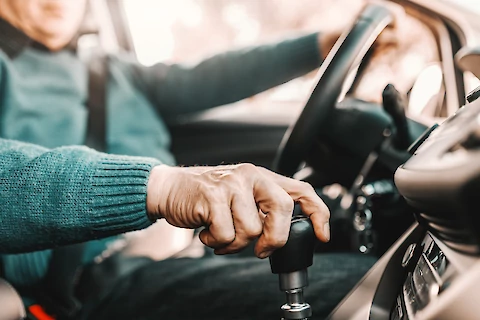
Discussing Unsafe Driving with a Senior
Talking to a senior about their driving abilities can be a challenging discussion to start. For many people, the ability to drive is a demonstration of independence. Giving up that freedom can be a hard thing to do.
While most seniors are safe drivers with few accidents, driving may be less safe for them past a certain age. Despite wearing seatbelts and being very cautious on the road, driving comes with the risk of fatalities from a collision.
Seniors in their 80s are more fragile and more vulnerable to injuries from a car accident. Their risk of accident increases if they have arthritis and dementia or are on medication.
When you notice a declining ability to drive for your loved one, you'll be worried about their road safety. You may want to discuss your fears with them but don't know how to go about it. Here's how to go about it.
Identify the Warning Signs
Denial is a common reaction to the early warning signs of losing the ability to drive safely. Your senior doesn't want to lose their driving privileges and will do anything to maintain that. Don't hesitate to bring up the discussion if you notice:
- Nervousness on the road
- Straddling lanes
- Sudden or unnecessary stops or accelerations
- Getting lost while driving
Use these instances to be specific in the discussion. They'll enable you to address this emotionally charged and challenging issue.
Be Respectful As You Air Your Concerns
Keep in mind that this transition can be difficult for your senior loved one. Remind your parents of the love you have for them and that you care about their safety and wellbeing. Be polite and firm, reminding them that it's essential to be concerned about the safety of other road users.
If your loved one resists discussion the first time, don't be hard on them, but gently remind them of the importance of talking about it.
Don't Have the Discussion Alone
Encourage other family members who have probably witnessed a decrease in your loved one's driving ability to be there during the discussion. Ensure the conversation isn't confrontational but approached from the point of care, kindness, and concern. Confrontations will only make your loved one defensive, and conflicts will arise.
Identify Viable Alternatives to Driving
There's no point in addressing a problem if you can't provide a solution. If your senior loved one wishes to stay independent, identify alternative means of transportation for them. The best place to start is to assess their driving skills and establish if they shouldn't drive at all.
If they can be behind the wheel under certain limited conditions, they can continue driving. Limited driving options include:
- Not driving in bad weather or at night.
- Driving only in familiar places and within a few miles away from home
- Staying away from the busy roads or expressways whenever possible
- Limiting distractions while on the road, for example, avoiding conversations and turning off the radio.
If driving is not an option at all, consider:
- Signing up for transportation services near your loved one's home. These will provide rides as necessary for your loved one.
- Taxis or ride-shares like Lyft or other private transport organizations
- Hiring a caregiver who can assist with driving needs
- Working out a schedule to drive your loved one yourself
- County transportation services for seniors
Understanding How Hard the Transition Is for Your Loved One
Don't make your loved one feel like their opinion doesn't count in this matter. Encourage them to transition from driving to adopting alternative transportation methods gradually.
You may wish to engage an occupational therapist to assess your loved one's ability to drive. They'll also recommend steps to make the transition safe.
If you wish to get assistance with taking care of your loved one from the comfort of their home, Senior Helpers Overland Park provides in-home care, including driving your loved one on errands and to appointments. Contact us today to learn how we can come through for your loved one.